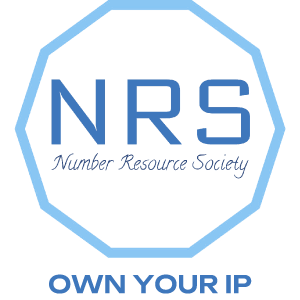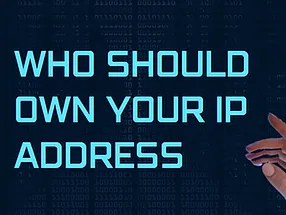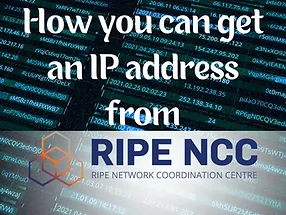The supply of unique IPv4 addresses is nearly depleted. However, the debate over the right to own IP addresses is still unsettled. There are only a few court cases worldwide that deal with IP address ownership. As such, this issue remains unclear.
There is a conflict between Regional Internet Registries (RIRs) and organizations that wish to exercise their own property rights over the IP addresses that were assigned to them. These organizations include businesses, universities, and institutions.
This post aims to explore the challenges related to IP address ownership and evaluate the benefits of having the right to own your IP address.

Legacy vs Non-Legacy IP Addresses
IPv4, the version of IP address that is most widely used today, was developed in 1981. Before the structure of the Internet was formalized, the Internet Assigned Numbers Authority (IANA), assigned IP addresses without contract or use limitations.
There is no legally-binding agreement between IANA and the recipient of those IP addresses. These IP addresses, issued before IANA rolled out formal agreements, are called legacy IP addresses. Around 45% of IPv4 addresses currently in use are legacy IP addresses. Despite the depletion of IPv4 addresses, most of these legacy addresses are currently unused.
Established norms regarding the use and ownership of IP addresses began when RIRs were formed. RIRs set the policies on how IP addresses can be used and transferred. IP addresses that were assigned after the formation of RIRs are called non-legacy IP addresses. If your IP address blocks were assigned by an RIR, you own non-legacy IP addresses. You are subject to rules by your RIR over how you can use and transfer your IP assets.
Policies over how IP assets can be used create a structure on Internet governance. However, there is a tendency for these policies to be non-competitive and stifle growth for businesses.
Should You Own Your IP Addresses?
To own your IP address means that:
– Your IP address cannot be taken from you without just causes.
– You have the right to sell or transfer your IP assets as you deem fit.
With regards to the question of whether you should own your IP address, it seems that RIRs disagree. Beyond being record keepers, RIRs want to maintain their control over policy development and Internet registration. In general, RIRs believe that IP addresses are not assets that can be bought and sold.
Some RIRs believe that they are the only ones in the position and with the expertise to manage IP assets. Although RIRs allow the transfer and sales of IP addresses, such transactions are still subject to restrictions imposed by RIRs.
However, many RIRs acknowledge that transfer of ownership is a necessary solution to the scarcity of IP addresses. Some RIRs allow such transfer as long as certain conditions are met. This policy by APNIC is an example.
Some experts argue that IPv4 ownership is beneficial as these resources have reached their exhaustion. Being able to sell and lease IP addresses will open new opportunities for businesses that need to connect to the Internet.

Reclaiming Unused IP Addresses
While the world is running out of IPv4s, it’s ironic that almost half of all these resources remain unused by legacy owners. RIRs have put efforts into reclaiming unused legacy addresses.
Many organizations who hoard a large volume of these rare resources refuse to declare their ownership for fear of losing them. Ultimately, RIRs have little control over the IP addresses that were assigned before they were established.
While legacy IP addresses remain unclaimed, having more rights over your IP addresses might alleviate some of the pressures of IPv4 exhaustion.
In conclusion, the world is running out of IPv4s. However, most legacy IPv4s are still unused. Giving businesses the right to own their IPs, and transfer ownership as they deem fit, can help ease the problems brought about by IPv4 exhaustion.



